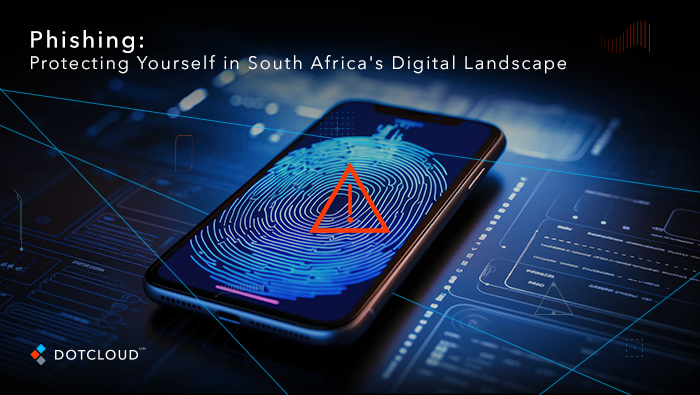Phishing: Protecting Yourself in South Africa’s Digital Landscape
Phishing scams are a growing threat in South Africa, impacting individuals, businesses, and the economy. These deceptive tactics trick victims into sharing sensitive information, leading to financial loss and identity theft.
Cybercriminals impersonate trusted entities like banks or government agencies to gain your trust. Once you provide information, they use it for fraud.
Common scams include:
Email phishing: Deceptive emails with fake links or attachments.
Spear phishing: Personalised emails targeting specific individuals or organisations.
Smishing: Phishing via SMS, often with urgent notifications or enticing offers.
Vishing: Phishing calls where scammers impersonate legitimate organisations.
The South African Banking Risk Information Centre (SABRIC) reports a 62% increase in digital banking phishing since 2020, resulting in over R262 million lost in the first half of 2021.
Here’s how to stay safe:
Be sceptical: Don’t share information with unsolicited emails, texts, or calls. Verify the sender through official channels before responding.
Double-check URLs: Hover over links to see the actual URL before clicking. Watch for misspelt domains or suspicious characters.
Update software: Regularly update your devices with the latest security patches.
Educate yourself: Learn about the latest phishing tactics and share knowledge with your network.
Use strong passwords: Create unique, complex passwords for all your accounts. Consider a password manager.
Businesses can leverage Dotcloud’s expertise to bolster their cybersecurity defences against phishing attacks. Our managed IT solutions include anti-virus and anti-malware protection, secure cloud storage, and user training on safe online practices. Additionally, Dotcloud offers 24/7 support, ensuring businesses have access to prompt assistance if they encounter any suspicious activity.
Get in touch with us: www.dotcloud.co.za


Recent Comments